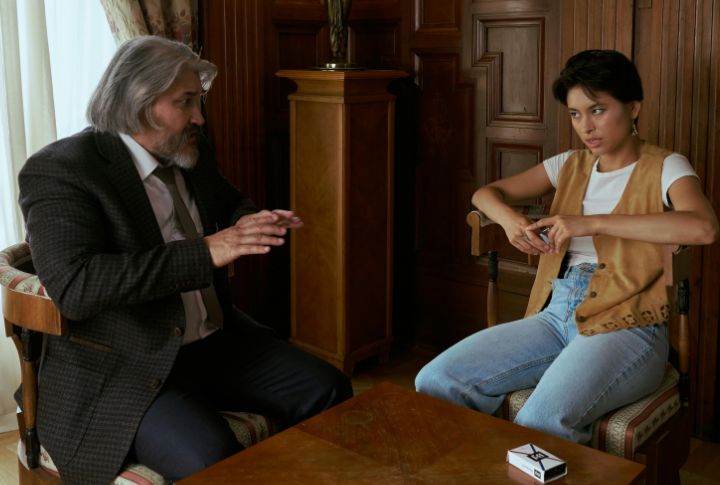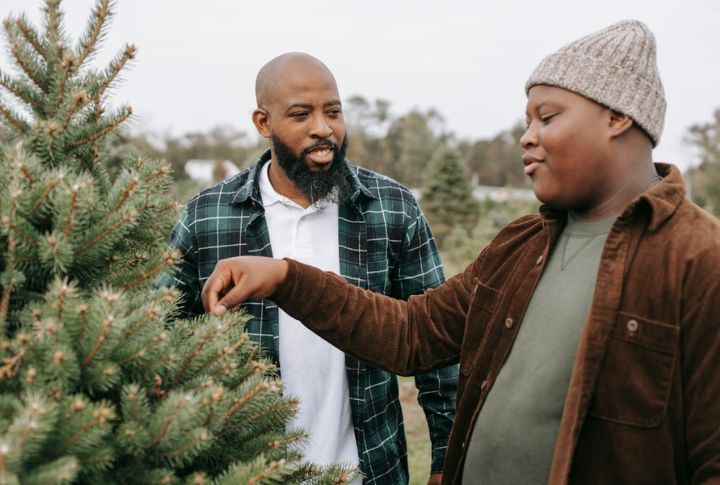
It’s never easy to stay composed when the child you once guided now speaks with sharp words or a dismissive tone. As adult children assert their independence, respect can sometimes feel lost in translation. But your response holds real power. The right words can calm tension, reopen dialogue, and remind both sides that love still anchors the relationship. Up next, you’ll find phrases that help rebuild respect—without deepening the divide.
“I Want To Hear Your Thoughts, But Please Speak To Me With Respect”

Sure, I’m all ears, but not for attitude. Sometimes grown kids forget their tone could slice glass, and a gentle nudge helps. Letting them know you’ll listen—just not to disrespect—keeps the conversation real without turning it into a one-way lecture.
“I’m Open To Hearing Your Side, But Please Lower Your Voice”

If yelling ever solved anything, every argument would end in applause. In reality, it only buries the message beneath the noise. Asking for a calmer tone isn’t about control—it’s about communication. When voices drop, clarity rises, and both sides finally start hearing what the other is actually saying.
“Let’s Pause So We Don’t Say Something We’ll Regret Later”

Sometimes the smartest thing you can say is “not right now.” By pressing pause before frustration takes over, you prevent words that can’t be unsaid. This phrasing shifts from “cooling down” to emotional accountability—showing that maturity means stopping before things spiral.
“I Value Our Relationship Too Much To Argue Like This”

You probably are aware of that moment when a debate turns into a duel? That’s when love takes the back seat. Stepping away from that tug-of-war reminds everyone that the goal is to stay connected, even when seeing things differently almost feels impossible.
“You May Disagree With Me, But Disrespect Is Not Acceptable”

Debating all day is perfectly fine—but turning it into an insult contest isn’t. This response draws a clear line: honesty doesn’t require cruelty. It’s a reminder that respect isn’t optional, even in families where DNA and strong opinions run deep.
“Let’s Treat Each Other Like The Adults We Both Are”

The psychology is clear: equal respect forms the bedrock of healthy adult relationships, including within families. When parents and grown children shift from hierarchical patterns to mature, balanced dialogue, conflicts resolve more naturally.
“I Hear That You’re Upset, But Attacking Me Isn’t Productive”

Yelling at the person trying to listen isn’t always a winning strategy. And recognizing frustration without absorbing the punches keeps things fair. When you hold your ground calmly, it’s incredible how fast the temperature drops and genuine understanding takes its place.
“I Deserve To Be Treated With The Same Respect I Give You”

Respect is a two-way subscription, renewed through tone and empathy. Remind your adult child that respect works both ways—what you give should be returned in kind. Keep your delivery calm but steady, showing that kindness and composure are lifelong habits, not reactions reserved for special moments.
“Let’s Focus On Understanding Each Other Instead Of Assigning Blame”

Blame’s fun until nobody’s talking. Still, swapping “who started it” for “how do we fix it” changes everything. As you lean toward understanding, walls come down faster than defenses at a family dinner. Empathy suddenly becomes the new table centerpiece.
“I’m Not Okay With Being Spoken To That Way”

Apparently, sarcasm isn’t the only language spoken in families. Calmly pointing out when a line’s been crossed resets the tone without turning it into a scene. That’s self-respect in its simplest form. And even the boldest adult child can’t outargue calm, clear logic for long.
“You’re Important To Me, And That’s Why I Need Us To Communicate Better”

Investing in your relationship with an adult child begins by showing them their worth. As communication opens up, mutual respect compounds, delivering long-term returns through stronger bonds, deeper trust, and conversations that keep growing in value over time.
“I Want Us To Have Honest Conversations That Don’t Turn Hurtful”

Real talk works best when kindness shows up, too. When both sides keep their tone human, honesty builds trust rather than bruises, and suddenly even hard truths sound like progress.
“You Don’t Have To Agree With Me, But I Expect Civility”

Disagree all you want, yet do it like adults who pay their own bills. Civility keeps things productive and shows maturity, proving that respect doesn’t vanish just because opinions collide. Bonus: it makes future talks easier, too.
“I’m Willing To Listen, But Not If I’m Being Insulted”

You can’t claim it’s a “discussion” if one side’s throwing verbal darts. Setting that line isn’t dramatic at all. In fact, letting people know that insults shut down the conversation helps everyone choose their words wisely and keeps peace from turning into a spectator sport.
“Let’s Reset And Try This Conversation Again Respectfully”

Ever wish life came with a reset button? Here it is. Asking for a redo is smart. It stops the emotional tailspin by clearing the air and gives everyone another chance to talk like they actually want to solve something, not win it.
“I Love You, But I Won’t Tolerate Being Disrespected”

Emotional boundaries act like a safety net for close relationships. They prevent affection from turning into frustration and preserve mutual respect during conflict. If both people know where the limits are, love stops feeling fragile and starts feeling grounded and worth maintaining.
“I’d Like Us To Continue This Later—When We’re Both Ready To Listen”

This phrase reframes pausing as an act of readiness, not avoidance. It communicates hope for resolution while preserving calm. By suggesting a later conversation, you show leadership in conflict without closing the door on understanding.
“Respect Goes Both Ways, And I’m Asking For It Now”

Respect isn’t a family discount, and you don’t get it just for showing up. It’s better to ask for it directly and set the bar for how grown-ups communicate. That keeps the balance fair and reminds everyone that being related doesn’t mean manners are optional.
“We Both Deserve To Be Heard Without Raising Voices”

It’s wild how yelling always claims to “get the point across” but mostly just gets on everyone’s nerves. Calm voices, though? It’s a sneaky way that actually works. They slip past pride and turn noise into something that almost sounds like progress.
“I Need A Little Time To Collect My Thoughts So I Can Respond Kindly”

This version personalizes the pause—it’s about emotional precision. By modeling calm reflection, you teach that thoughtful communication is more powerful than impulsive reactions. It’s self-awareness turned into a boundary that’s not avoidance.

